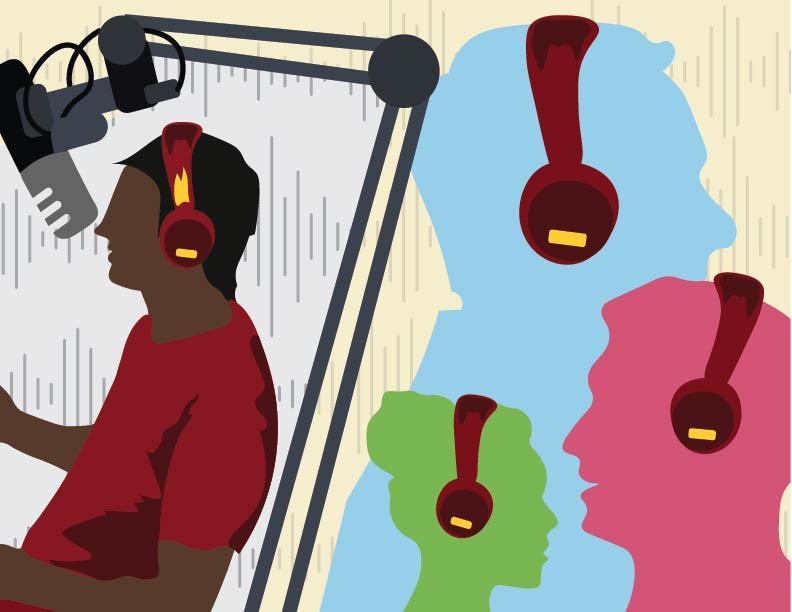An aspiring TV personality and current hustler, University of Minnesota journalism senior Dijon McCain recently released his passion project that was one year in the making.
Focusing on everything from relationship taboos to racial prejudice, McCain’s podcast, “The Juice,” speaks to the new age listener.
“‘The Juice,’ to me, is a fusion of having conversations that people are afraid of having, and also the whole politics side of these discussions,” McCain said. “It’s about challenging different perspectives.”
McCain says he’s here to encourage talks that are taboo. Built with three foundational pillars of authenticity, vulnerability and controversy, “The Juice” takes a look at everyday life and fuels emotional discourse by going against the grain.
“We can disagree on things and that’s OK. But in today’s society, it’s like we’re not allowed to disagree,” McCain said. “No subject is off limits [on the podcast]. I don’t care if people get offended; we’re getting real life out there. This is stuff that we go through as college students.”
McCain hopes to infuse these intentions into every episode. While he doesn’t condone fighting, he believes controversy catalyzes new considerations.
“Whenever something is said that does not align with your beliefs, and if you have a voice and you’re passionate, you feel attacked.” McCain said. “This brings out the real authenticity [that I’m] looking for. It’s like a domino effect.”
It’s through his own experience that McCain draws inspiration for each episode of the podcast. Drawing from his time interning at BET, living in New York and just hanging out on campus, the show reflects his raw wisdom.
“I’m out there on my first day on campus in the lunchroom, and this girl behind me is like, ‘Yeah I gotta beat his ass for that.’ I turn around and was like, ‘What?,” McCain said. “It would spark an idea. People are always arguing about this or that.”
Each episode of “The Juice” features two or three guests. The premiere focuses on college dating dynamics and holds many subtopics, the most prevalent being race.
“I connect with the podcast because all of the topics so far are very relatable and the opinions are coming from people in my age group that look like me,” said University kinesiology junior Donjae Rowe, who tuned into episode one. “It teaches me something important and leaves me thinking. It’s exciting.”
But the podcast can stir adverse reactions, too.
“My takeaway [from episode one] was that we pass our trauma and bad experience onto others,” said business and marketing education junior Monique King. “Some people want to be right instead of listening and learning.”
As a passionate member of the University’s Black Student Union, McCain says race is an underlying theme in many episodes. He wants to accurately and proudly represent a community that he says has been left without a platform on campus.
“The podcast gives me the ability to give my perspective as a black male and the privileges I have and issues I deal with on the daily, and it’s a platform for everyone to do the same,” McCain said. “I invite all people to come on the podcast to speak and let us know, what’s your truth?”
Instead of passively letting those outside of a community attempt a depiction of a group that is not their own, listeners hear from those immersed since day one. All guests on the podcast have full creative control of their stories, an ingredient McCain says is essential to “The Juice.”
Planning to release upcoming episodes on controversy in the rap world and more, McCain has a lineup ready to fill a season of content. On the horizon, the host sees “The Juice” turning into a a full-on media outlet similar to that of talk shows like “Complex” or “The Breakfast Club.”
“I want to be the male version of Oprah, with my own show,” McCain said. “I’m here to get juicy topics rolling. People say I got the juice, the drip — it all relates, it all falls under ‘The Juice.’”








